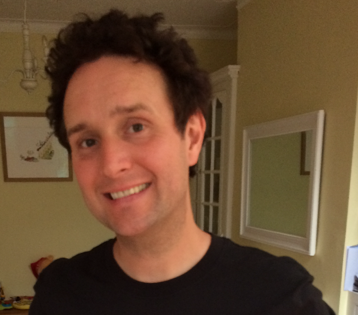Every contact leaves a trace

A few years ago, I was on holiday when I briefly got chatting with a fellow tourist – a kind police officer – by the pool. He had been – and was still – working his way through burnout linked to his work.
He had written a book about his experiences, which introduced me to what is known as Locard’s Principle and the fact that every contact leaves a trace. In his book, although Locard’s Principle is one of the founding concepts in forensics, he related it to how every traumatic or emotionally difficult situation leaves a residue, or emotional memory, no matter how small, within you. He also covered how this can build up, sometimes eventually leading to burnout and other psychological consequences.
Locard’s Principle in forensic science holds that the perpetrator of a crime will bring something to the crime scene and will leave with something from it. It was devised by the ‘Sherlock Holmes of Lyon’, France – Dr Edmond Locard (1877-1966). This basic principle of forensic science is the concept that “every contact leaves a trace” and that ‘with contact between two items, there will be an exchange’.
This made me think that similarly in general practice, you could say that every consultation leaves a trace. Some may leave much more than this, and in fact a fully-fledged scar that needs healing, with consequences for both GP and patient.
But what can certainly be said is that in consultations, there is an emotional exchange between doctor and patient. Usually, the patient comes to see you in a state of anxiety, ill health, and sometimes frustration or anger, and then projects this, sending these emotional messages to the GP. The GP will then have to ‘absorb’ these anxieties, frustrations, and commonly negative feelings, package them up, and set out to diagnose, reassure and console in as understanding and empathetic way as possible.
Currently in general practice, this can be up to 60 times a day.
Let’s say there are these 60 emotional transactions, during a busy on-call day. This means that the GP will be absorbing 60 individuals’ numerous anxieties (‘Could I have cancer, doctor?… I Googled it and it said so’); grief, anger; frustration and sadness.
If you’re empathetic doctor, some of the emotions will stay in you and leave a lasting effect. You may struggle with sleep – being unable to; waking in the middle of the night; or noting your subconscious bringing something to the surface of your consciousness from previous. In the daytimes, you might feel anxious, worry for no particular reason; or want to avoid seeing patients or even other people in general.
Every contact leaving a trace explains why you’re that much more exhausted after you’ve done eight clinical sessions that week, rather than your normal six. Your emotional reserves and battery are depleted, and need the weekend to at least partially charge them up again.
It’s why doing GP sessions and sitting in meetings or CCG boards is never equivalent to clinical sessions in terms of exposure to emotional energy and the risk of burnout.
We may not be aware of it, but every consultation leaves a trace, and every consultation is a risk. This is what, however, makes the job of a GP so worthwhile. We take that risk, absorb the negative emotional energy, and try and do our very best for each and every patient who comes to see us.
Clinical general practice (I’m afraid I have to differentiate this from some GPs who now seem to be mainly managers) is one of those ‘make a difference’ jobs. We can really make a difference to peoples’ lives, not only through correct diagnoses and clinical decision-making, but through being sympathetic, empathetic, taking time to listen and just by being there ‘bearing witness’ to the patients in front of us. But with this is the personal risk to yourself and sometimes your own health if you’re not careful. If you do it right, patients will remember you, but if you do it wrong, they’ll also remember you. If you spend your whole time sitting in lots of boring meetings, no-one will remember you. Take the risk and see patients, but be careful and remember that every contact leaves a trace.
Dr David Mummery is a GP in west London and academic clinical research fellow at Imperial College London
Related Articles
READERS' COMMENTS [5]
Please note, only GPs are permitted to add comments to articles










A radioactive trace. I bought a Litmann reptilian skin recently, and Oxford Handbook of Peace Without Undue Follow-Up. To the intuitive empath, it is well overdue. Less destructive, more reconstructive.
Refreshing article. Thank you David.
In effect the risk of a form of PTSD due to repeated exposure to harrowing stories and the moral injury of being unable to deliver a decent service is now an occupational hazard for GP staff.
An excellent and thoughtful article. Thank you Dr Mummery
“If you do it right, patients will remember you, but if you do it wrong, they’ll also remember you.”
absolutely spot on !
or, as my ex boss said “when you’re right, no-one remembers, when you’re wrong, no-one forgets” !!
excellent article – i hope that when someone writes my obituary, it includes the comment “he despised administrators, pen pushers, and bean counters” !!